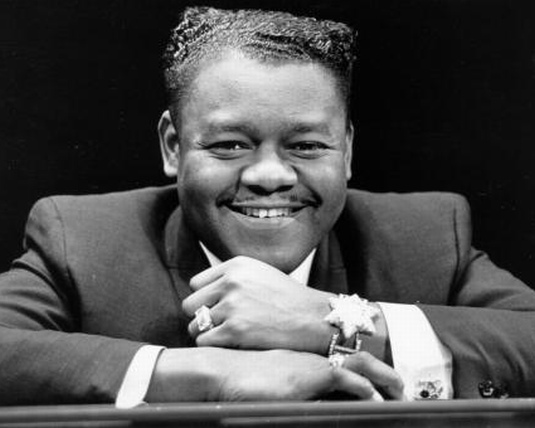 |
| Antoine Dominique "Fats" Domino was born on February 26, 1928 |
Rock and Roll pianists are not very common in contemporary music. They're even more scarce in Rhythm and Blues. Back in the early days of our contemporary styles of popular music, in the 1950s, this wasn't the case. The dominance of the guitar was still around a decade away and the influence of Boogie-woogie piano blues was strong.
Perhaps the most iconic performer of this style of music was Fats Domino. In spite of the racial biases of the era, his musical talent brought him into the attention of mainstream popular music, helping to kick off the diverse mix of musical styles that became Rock and Roll.
And since it's his birthday, let's celebrate by listening to some of his songs.





















